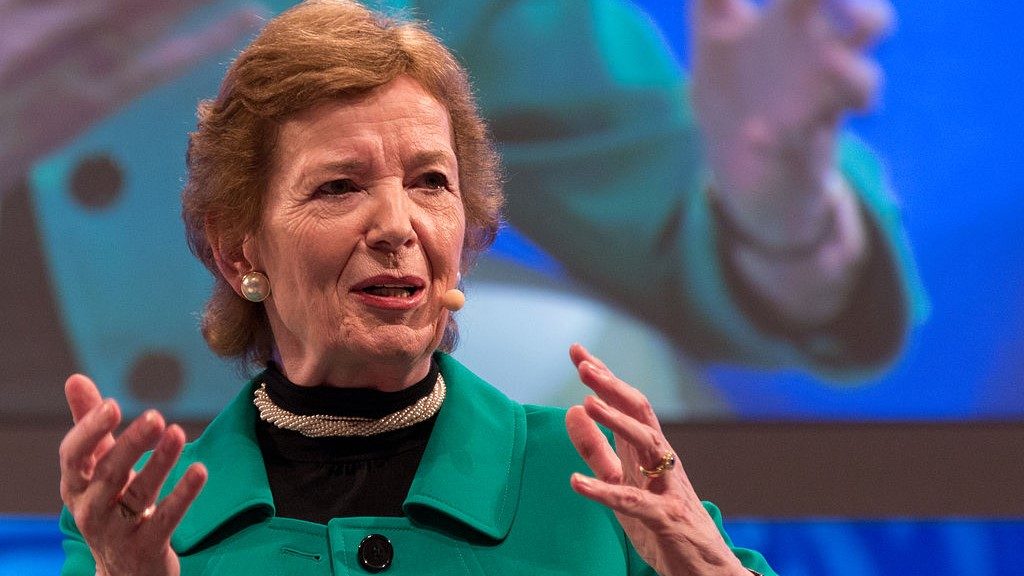COP23: Mary Robinson calls for more action to ensure climate justice

November 16th, 2017
Former Irish President Mary Robinson has called for the creation of a Climate Action Justice Unit at a high-level event on human rights at COP23 event.
Speaking this afternoon in Bonn, Ms Robinson said that such a unit could help build upon previous work to ensure climate justice and the integration of human rights into climate action plans.
She acknowledged the progress made since she attended her first COP event in Copenhagen in 2009, highlighting a “number of important further steps” in the area of gender and indigenous rights.
However, Ms Robinson was keen to stress that climate change remains “biggest human right’s threat we face” today and highlighted the “really serious” rise in emissions over the past year.

Mary Robinson at the 2014 One Young World Conference in Dublin, Ireland Photo: Stefan Schäfer
She said that the Paris Agreement commitment to keep global temperature rise well below 2 degrees and to be carbon neutral by the second half of the century was the biggest climate justice steps taken in recent memory.
However Ms Robinson stated that in order to meet the 1.5 degree target, carbon neutrality needs to be met “at the latest by 2051”. In order to reach that goal, she said we need to be “much more serious” about how we are going to get there.
Ms Robinson insisted “on the crossing cutting approach to human rights,” so as the clean energy industry grows, to demand that any actions taken respect all aspects of human rights.
Threat to peace and security
Opening the event, COP23 President, Mr Frank Bainimarama said that climate change “poses a threat to lives, livelihoods, peace and security” and “amplifies conflict between people”.
The Fijian President added that the world has already seen consequences of 1.1 degrees warming with too many examples of people who are “distressed and dislocated”.
Moroccan Ambassador Aziz Mekouar outlined how parts of his country are already having problems with drinking water as a result of climate change.
Mr Mekouar also addressed the huge issue of climate displacement, explaining that a three-degree increase in global temperatures would mean a six-degree rise in the North-East of Morocco. “People can no longer live anymore if this happens,” he said.
Also speaking at the event, the President of the UN Environment Assembly, Edgar Gutiérrez Espeleta, reached out to the international community to “raise ambition” going into 2018.
“The effects of climate change for the most vulnerable populations are not acceptable in human right terms. The right to mere existence is at risk and with it the survival of humanity.”
[x_author title=”About the Author”]







